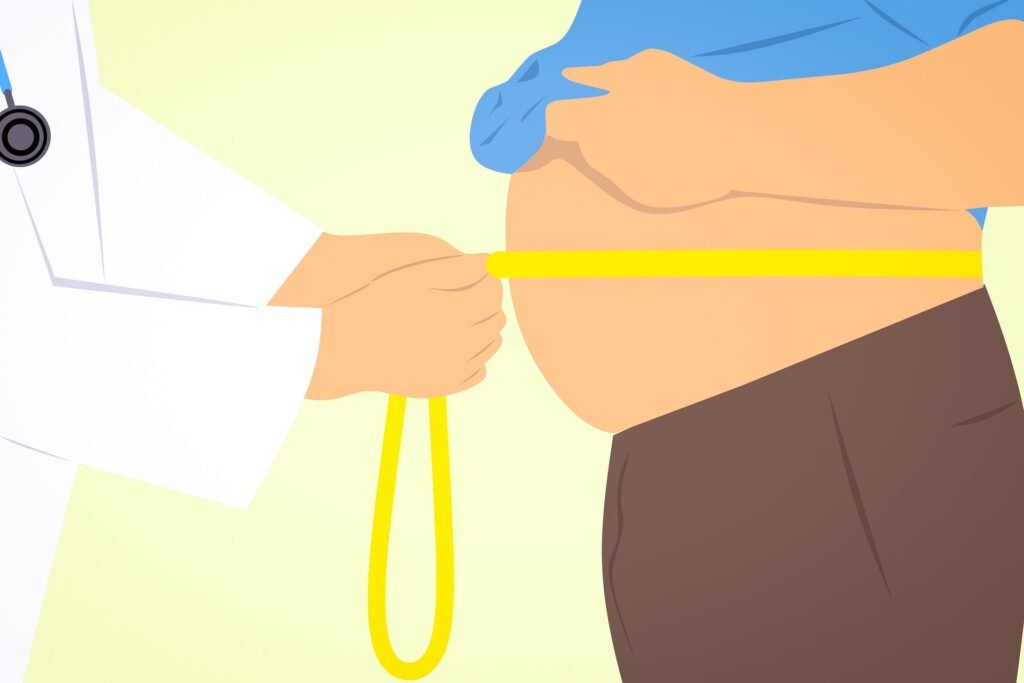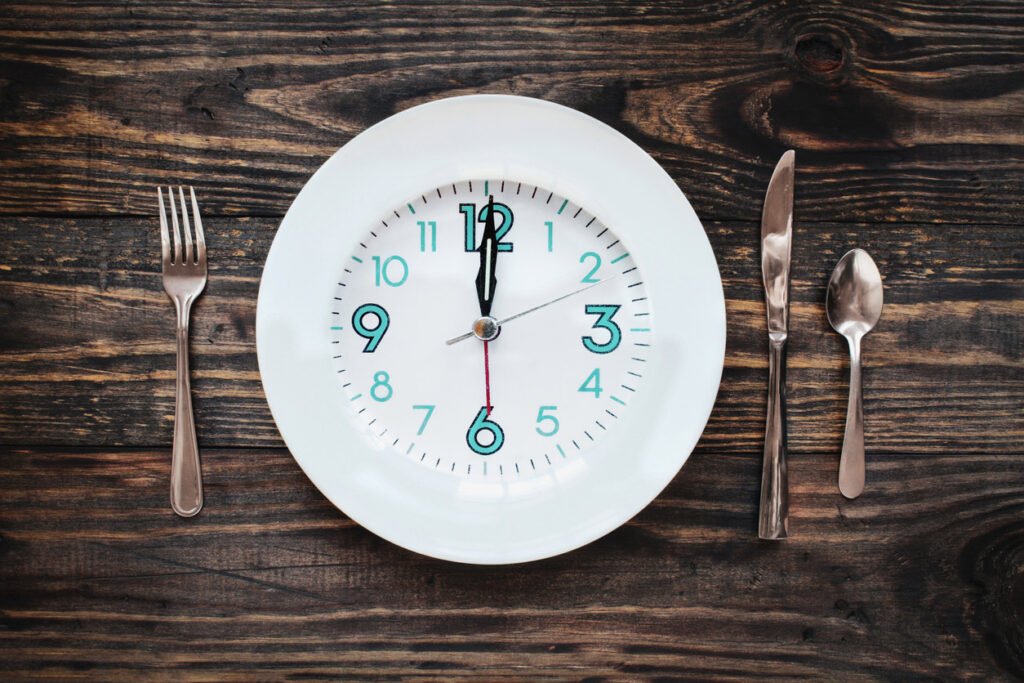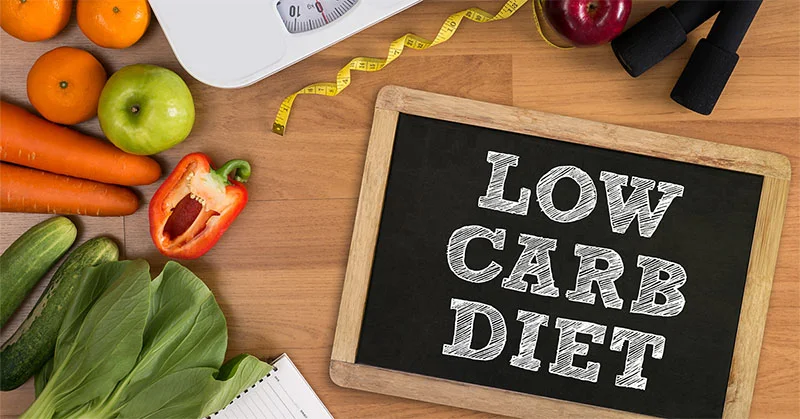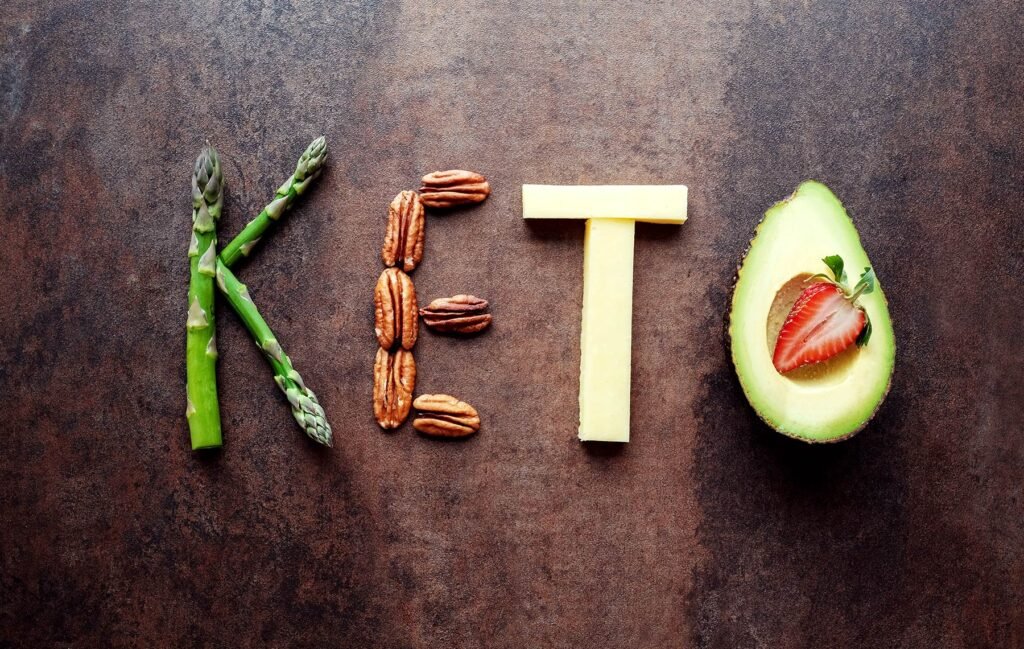Table of Contents
Are you frustrated with endless dieting and exercise, yet still struggling to lose weight?
You might be blaming a “slow metabolism,” but the real culprit could be lurking in your hormones!
Discover the surprising truth about insulin and how it’s secretly sabotaging your weight loss efforts.
Learn how to finally break through your weight loss plateau and achieve lasting results by reading this article!
Brief The Article:
What is metabolism?
Metabolism encompasses all chemical reactions in the body, including breaking down food for energy, building and repairing tissue, maintaining body temperature, and eliminating waste.
Why doesn’t simply eating less and exercising more always work for weight loss?
The body is more complex than a simple calorie in/calorie out model. Hormones, particularly insulin, play a significant role in whether the body stores or burns fat.
The role of insulin in weight loss
Insulin is a hormone that signals the body to store fat when levels are high and burn fat when levels are low. High insulin levels can prevent weight loss and promote fat storage.
Symptoms of high insulin levels
Symptoms include increased hunger, carb cravings, frequent urination, belly fat accumulation, fatigue, cognitive issues, mood changes, and difficulty losing weight beyond a certain point (set point).
What triggers insulin production?
- Carbohydrates and sugar
- Frequent eating (snacking and grazing)
- Excessive protein intake, especially low-fat protein
- Stress
- Inflammation
- MSG (monosodium glutamate)
- Lack of sleep
What helps to lower insulin levels?
- Low-carb diets (e.g., ketogenic diet)
- Intermittent fasting
- Exercise, particularly resistance training
- Natural fiber from vegetables
- Healthy fats
- Potassium, Vitamin B1, and Vitamin D
- Apple cider vinegar
- Achieving ketosis
What is insulin resistance?
Insulin resistance occurs when the body becomes less responsive to insulin, requiring more insulin to achieve the same effect. This can lead to chronically high insulin levels and difficulty losing weight.
How does understanding insulin change the approach to weight loss?
Instead of focusing on “boosting metabolism,” the key is to manage insulin levels through diet, exercise, and lifestyle changes. This approach addresses the root cause of weight loss difficulties for many people.
Key Takeaways:
- The concept of a “slow metabolism” is often a misdiagnosis.
- Insulin plays a crucial role in weight loss and fat storage.
- High insulin levels can mimic symptoms of a slow metabolism.
- Understanding insulin triggers and inhibitors is key to successful weight loss.
- Insulin resistance, not slow metabolism, is often the root cause of weight loss difficulties.
So let’s dive into the details…
Stop Trying to Fix a Slow Metabolism: It’s an Insulin Problem!

You know there’s nothing worse than having someone give you the wrong diagnosis. They’ll say you have a slow metabolism right? Because you can’t lose weight fast.
So when you’re given this false diagnosis then you’re very susceptible to doing the wrong thing because then you’re going to be focused on trying to find something to boost your metabolism.
Well, that doesn’t work. In reality, the problem is not a slow metabolism. Stop trying to fix a slow metabolism – it’s likely not the issue. Let me explain.
Key Points:
- Incorrect Diagnosis: Being told you have a slow metabolism can lead to ineffective weight loss strategies.
- Focus on Boosting Metabolism: This is often a misguided approach and doesn’t address the root cause.
- The Real Problem: The issue isn’t a slow metabolism, but likely hormonal imbalances, specifically insulin. You might think you need to stop trying to fix a slow metabolism, but the answer lies elsewhere.
Understanding Metabolism and Weight Loss: It’s More Than Calories In, Calories Out.

What is Metabolism?
So what is metabolism? You have all these chemical reactions going in your body whether you’re breaking down food into energy or building things back up into body tissue like repairing things, like maintaining temperature and eliminating waste.
All that is part of metabolism. Some people tell you to create a negative caloric condition where you’re consuming less calories than you’re eating,
eat less and then you need to exercise more and then after about six months of doing this you haven’t really lost a pound. They basically heat up these calories and burn them,
in a lab to determine how much energy is in a carbohydrate, fat and protein but in the body, in a biological system things work completely different. You have a lot more complexities going on.
Key Points:
- Metabolism Definition: Encompasses all chemical reactions in the body, including energy production and tissue repair. Perhaps you should stop trying to fix a slow metabolism and look deeper.
- Calorie Counting Limitations: Simply eating less and exercising more doesn’t always lead to weight loss. Stop trying to fix a slow metabolism; the solution is more nuanced.
- Biological Complexity: The human body is more complex than a simple calorie equation. Hormones play a significant role. You may be trying to fix a slow metabolism that isn’t the real issue.
The Real Reason Behind Your Weight Loss Stall: Insulin – The Fat Storing Hormone.

Number one, you have hormones and that’s really the missing factor is the hormone influence over your specific calories.
So hormones are basically the communications in your body and the very important hormone that relates to whether you burn fat or store fat is insulin.
So the insulin message is store fat. If insulin goes up you store fat. If insulin goes down it’s a different message, it’s burn fat.
So in reality if insulin is too high that is going to mimic a slow metabolism because as soon as you lower it you start to burn fat.
Key Points:
- Hormonal Influence: Hormones significantly impact how your body utilizes calories.
- Insulin’s Role: High insulin levels promote fat storage and can mimic the effects of a slow metabolism. Stop trying to fix a slow metabolism and focus on insulin.
- Lowering Insulin: Reducing insulin levels is key to unlocking fat burning. You might be surprised to learn you should stop trying to fix a slow metabolism and look at this instead.
Symptoms of High Insulin: Recognizing the Signs.
But if that hormone is just a little too high not only will you not be able to burn fat but the body’s going to enhance the storage of calories into fat.
You see this topic is all about focusing in on the real problem so then you can have an actual solution to fix it.
If we know what triggers insulin and how to inhibit it then you will know how to lose weight and you’re about to find out why that is so different than thinking you have a slow metabolism and you need to speed up your metabolism.
It just actually will make things worse whether you’re taking like caffeine or energy boosters or certain herbs that stimulate your metabolism.
They end up burning out your metabolism. So before I get into the triggers let me just explain what happens when this hormone insulin goes up. You’re going to experience several symptoms, okay?
Key Points:
- Increased Fat Storage: Elevated insulin not only prevents fat burning but also encourages fat storage. You might be trying to fix a slow metabolism when the culprit is insulin.
- Focus on the Root Cause: Understanding insulin’s role is crucial for effective weight management. Stop trying to fix a slow metabolism and address the underlying issue.
- Metabolic Burnout: Stimulating your metabolism artificially can be detrimental in the long run
Symptoms of High Insulin Continued: Hunger, Cravings and More
You’re gonna find that you’re hungry more often. You’re gonna crave carbohydrates. You’re gonna have frequent urination especially at night. You’re gonna have a tendency to have more belly fat.
You’re gonna have fatigue. You’re gonna have cognitive issues because you’re going to have brain fog. You’re not going to be able to focus as well.
Your mood is going to be affected. You might feel more grouchy. You might have more anxiety. And you’re definitely going to have more liver fat and that’s really what’s creating a spill off into your abdominal area where you have belly fat.
Key Points:
- Increased Hunger and Cravings: Elevated insulin can lead to increased appetite and carbohydrate cravings.
- Frequent Urination: Especially at night, can be a sign of high insulin levels.
- Belly Fat Accumulation: High insulin promotes fat storage, particularly in the abdominal area.
- Fatigue and Cognitive Issues: Brain fog and difficulty focusing can be linked to insulin resistance.
- Mood Swings and Anxiety: Insulin imbalances can affect mood and contribute to anxiety.
- Fatty Liver: Excess insulin can lead to the accumulation of fat in the liver.
The Impact of High Insulin on Weight Loss: Understanding Your Set Point.
You’re also going to notice that your set point, okay that weight that you just can’t get below is going to be really stuck if not raised.
So in other words let’s say you, you do all these different methods of trying to fix a slow metabolism and lose weight and you just can’t seem to get below 160 or 155 you’re just stuck there.
Well that is called a set point and insulin is really behind the set point. The inability to continue to lose weight.
Key Points:
- Weight Loss Plateau (Set Point): High insulin can contribute to a weight loss plateau, making it difficult to lose weight beyond a certain point.
- Insulin’s Role in Set Point: Insulin resistance can raise your set point, making it harder to achieve your weight loss goals. It’s time to stop trying to fix a slow metabolism and focus on this.
Insulin Resistance and Gluconeogenesis: The Vicious Cycle.

And there’s one more really interesting symptom related to this. If your insulin is too high you will start, or your liver will start making extra sugar not from sugar from your diet but from other things like your own fat and protein.
That’s called gluconeogenesis. Gluco meaning sugar, neo meaning new, genesis meaning the creation of. And you’re making new sugars because of a very interesting situation where your insulin has been chronically high for so long you develop this other condition called insulin resistance,
which means your body has to compensate and make more insulin to create the same effect. So you have certain parts of your body where you’re expressing symptoms of too much insulin yet other parts of your body where you’re experiencing too little insulin.
Key Points:
- Gluconeogenesis: High insulin can lead to the liver producing glucose from non-carbohydrate sources like fat and protein.
- Insulin Resistance: Chronic high insulin can lead to insulin resistance, where the body becomes less responsive to insulin’s effects.
Insulin Resistance and Gluconeogenesis Continued: The Diabetic Connection.

And one common thing that you see especially with diabetics that have insulin resistance which they always do is this extra production of sugar from your liver
you usually see it when a person comes off the sugar and then they have high sugars especially in the morning and they’re like where this coming from? Well it’s coming from this insulin resistance situation. You may need to stop trying to fix a slow metabolism and consider this connection.
Key Points:
- Diabetes and Insulin Resistance: Diabetics often experience insulin resistance and increased glucose production by the liver.
Insulin Triggers and What To Do: Taking Control of Your Insulin Levels.
All right so now let’s talk about two different things. We’ll talk about what triggers insulin and what inhibits insulin.
If you understand both sides of the coin then you personally can control your own weight, okay? So what triggers insulin? Well it’s carbs, okay carbs and definitely sugar, okay? What inhibits insulin? Low carbs, that’s the ketogenic diet.
All right another big trigger to insulin is frequent eating okay like snacking and grazing. There’s nothing more powerful to trigger insulin and stop you losing weight then the small snacks through the day because you’re constantly triggering insulin all day long.
Key Points:
- Carbohydrates and Sugar: These are the primary triggers of insulin release.
- Frequent Eating/Snacking: Constant snacking keeps insulin levels elevated, hindering weight loss. You should stop trying to fix a slow metabolism and focus on reducing snacking.
Insulin Triggers and What To Do Continued: The Power of Fasting.

And it’s this chronic sustained high insulin that puts you in a situation where you’re just not going to lose weight no matter what. So that means one of the things that inhibit insulin is fasting okay, intermittent fasting.
This is why we recommend keto intermittent fasting and that is so powerful to address what you think might be a slow metabolism. In reality it’s just an insulin problem.
Another thing that will trigger insulin is excessive amounts of protein especially if it’s low fat or no fat protein as in whey protein powder. That on the insulin index is pretty darn high.
Now of course that doesn’t compare to eating sugar but it’s still a factor that could be a problem.
Key Points:
- Fasting (Intermittent Fasting): Allows insulin levels to drop, promoting fat burning. Perhaps you should stop trying to fix a slow metabolism and consider this approach.
- Excessive Protein (Low-Fat): While not as impactful as carbohydrates, excessive low-fat protein can still trigger insulin release. Stop trying to fix a slow metabolism and look at your protein intake.
Inhibiting Insulin: Exercise, Fiber and Fat.

All right now on the inhibiting side okay, what will keep insulin low and make insulin more sensitive and less resistance is exercise specifically resistance training,
working your whole body at a certain volume and in certain uh intensity uh that’s very very beneficial for insulin resistance. And there’s two other things that will not trigger insulin, okay?
One is fiber. Natural fiber from things like vegetables. Now I’m not talking about the fake fibers like fiber yum for example which is a synthetic fiber which will definitely increase your insulin.
I’m talking about the natural fiber from vegetables not the fiber from grains because grains comes with too many carbs but actual really healthy type natural fiber and then we have fat, okay?
Key Points:
- Exercise (Resistance Training): Improves insulin sensitivity and helps lower insulin resistance.
- Fiber (Natural from Vegetables): Does not trigger insulin release and can help regulate blood sugar levels.
Inhibiting Insulin Continued: The Surprising Role of Fat.
Fat apparently does not trigger insulin and this is very surprising to people because they’ve been taught that you need to avoid fat with a slow metabolism.
Well guess what they didn’t really have a slow metabolism in the first place they had too much insulin and fat is one of the things that doesn’t trigger insulin. Interesting.
You might be trying to fix a slow metabolism by avoiding fat, but that could be counterproductive.
Key Points:
- Fat: Does not trigger insulin release and can be beneficial when consumed on a low-carbohydrate diet. Stop trying to fix a slow metabolism and consider the role of healthy fats.
Inhibiting Insulin Continued: Managing Fat Intake and The Ketogenic Diet.

Now as far as eating fat goes um as long as you keep your carbs low you’re going to be totally fine. That’s why the ketogenic diet has is a good percentage of fat because we keep our carbs really really low and we keep moderate amount of protein.
All right another trigger for this insulin is stress, okay? When the stress goes up the cortisol goes up. Another name for cortisol is glucocorticoids because it’s a hormone that also controls glucose to a certain degree and it will turn your proteins even your body tissue into glucose.
Key Points:
- Low-Carb Diets (Ketogenic Diet): High-fat, low-carb diets can be effective for managing insulin levels and promoting weight loss. Perhaps you should stop trying to fix a slow metabolism and explore the ketogenic diet.
The Impact of Stress on Insulin: The Cortisol Connection.

One of the side effects of high levels of sustained cortisol output is diabetes because you’re changing the protein into glucose and it’s not coming from the dietary sugars it’s coming from stress.
So stress can make you fat but it ultimately comes back to the insulin because the cortisol is raising the insulin. It’s not the cortisol directly it’s it’s an indirect effect.
Now let’s flip over to the inhibitor side okay, there’s several things that can inhibit insulin and make insulin more sensitive and less resistant that would be potassium, vitamin B1 and vitamin D, okay?
All three of those can greatly help you lower this insulin resistance situation. Now another thing that can make insulin more sensitive is apple cider vinegar, okay?
Take a tablespoon put some water drink that that will really help your blood sugars.
Key Points:
- Stress and Cortisol: High stress levels elevate cortisol, which can indirectly increase insulin and contribute to weight gain. Stop trying to fix a slow metabolism and consider stress management techniques.
More Ways to Improve Insulin Sensitivity: Ketosis and Other Factors.

And then when you actually end up getting into fat burning that’s called ketosis and ketosis by itself can increase insulin sensitivity.
You might be trying to fix a slow metabolism without realizing the benefits of ketosis. And then there’s three last things that you have to be aware of if you want to keep insulin lower because these three things will trigger insulin: number one inflammation, okay?
Inflammation that comes from omega-6 fatty acids like the so-called vegetable oils the corn oil the soy oil the canola. Those are very inflammatory. Then you also have belly fat in general. Visceral fat actually increases inflammation and that alone could actually increase insulin.
Key Points:
- Ketosis: A metabolic state of fat burning that can improve insulin sensitivity.
- Inflammation (Omega-6 Fatty Acids): Inflammatory foods can contribute to insulin resistance.
- Belly Fat (Visceral Fat): Increases inflammation and can contribute to insulin resistance.
Final Factors Affecting Insulin: MSG, Sleep

MSG monosodium glutamate has the potential to increase insulin. It’s in a lot of foods especially in restaurant foods.
And a lack of sleep can also mess up your blood sugars and increase insulin. This is why people lose more weight if they have a good night rest.
All right now you have the secret to bust through this plateau and overcome what you thought was a metabolism problem. In reality it was really an insulin problem. It’s time to stop trying to fix a slow metabolism and focus on the real culprit: insulin.
Key Points:
- MSG (Monosodium Glutamate): Can potentially increase insulin levels.
- Lack of Sleep: Disrupts blood sugar regulation and can lead to elevated insulin. You might be surprised to learn you should stop trying to fix a slow metabolism and prioritize sleep.
Learn More About Insulin Resistance!
And on that note if you want more information about insulin resistance I put up this topicright here check it out. Stop trying to fix a slow metabolism and learn more about the impact of insulin!
Additional-resources
Summary
- A slow metabolism isn’t what’s causing your slow weight loss, and this wrong diagnosis can completely derail your progress.
- You have various chemical reactions going on in the body, like breaking food down into energy, building things back up into body tissue, repairing, maintaining temperature, and eliminating waste. All of these things are a part of metabolism.
- But, the real missing factor is the hormone influence over your specific calories. Hormones are basically the communication system in the body.
- A very important hormone that’s related to whether or not you’ll burn or store fat is insulin. If insulin goes up, you store fat. If it goes down, you burn fat. If insulin is too high, that will mimic a slow metabolism. Instead of trying to fix a slow metabolism, you may want to focus on lowering your insulin to boost fat burning.
Symptoms of high insulin:
• Increased hunger
• Cravings for carbs
• Frequent urination (especially at night)
• Fatigue
• Cognitive issues
• Lowered mood
• Increased belly fat and liver fat
• A high set point
• Increased gluconeogenesis (your liver makes excess sugar)
The top triggers of insulin:
• Carbohydrates
• Sugar
• Frequent eating
• Excess protein in the diet
• Fake fibers
• Stress
• Inflammation
• Belly fat
• MSG
• Lack of sleep
How to decrease insulin:
- Get on the ketogenic diet
- Do fasting
- Exercise
- Consume natural fiber from vegetables
- Consume fat in your diet
- Take vitamin B1, potassium, and vitamin D
- Consume apple cider vinegar




